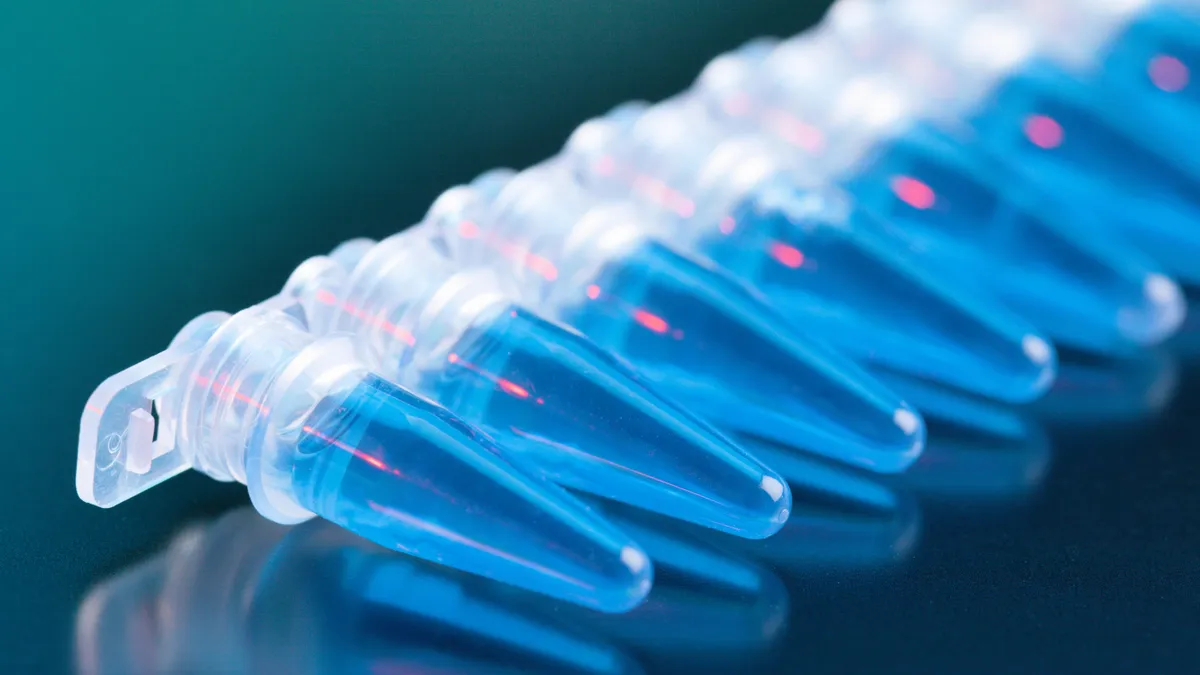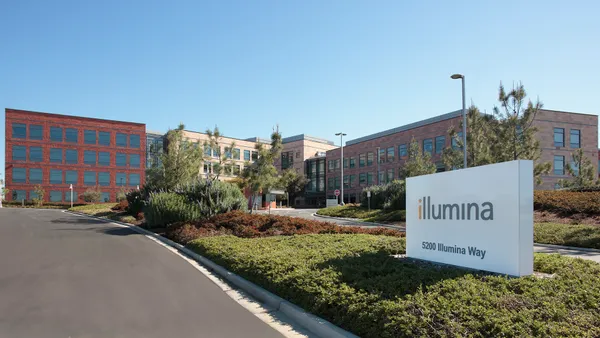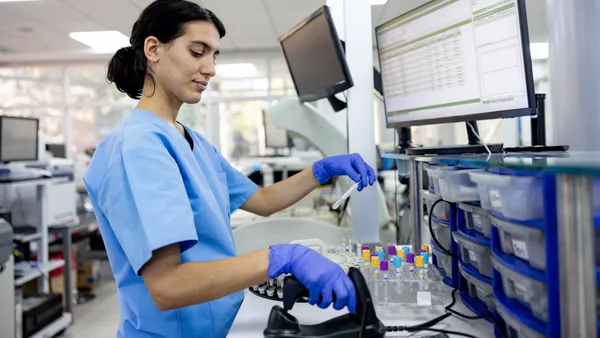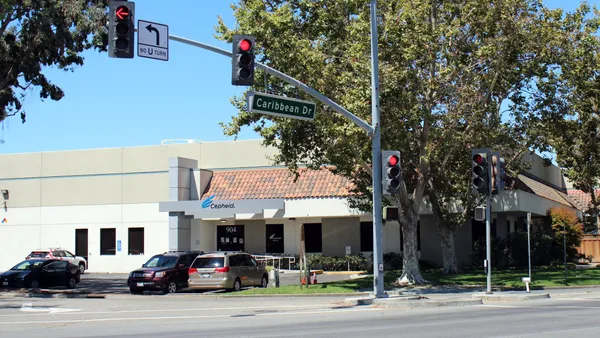Dive Brief:
-
LabCorp and Quest Diagnostics have separately committed to expanding their laboratory testing footprints.
-
Quest plans to open its largest U.S. facility in New Jersey to boost its ability to meet demand for laboratory testing services in seven states.
-
Meanwhile, LabCorp is opening nine patient service centers in Walgreens stores in California as it takes its collaboration with the pharmacy chain to the West Coast.
Dive Insight:
LabCorp and Quest are both pushing hard to capture more and more of the large but fragmented U.S. market for laboratory services.
Quest is confident enough in its ability to make those gains that it has extended its revenue forecast 3% to 5% compound annual growth rate (CAGR) out to the 2019 to 2022 time period. The company expects its earnings to achieve a CAGR of 4% to 6% over the same window.
To support its growth plans, Quest is set to open a 250,000-square-foot laboratory on part of the former Hoffmann-La Roche campus in Clifton, New Jersey. When the the laboratory becomes operational in 2021, it will become the largest in Quest's portfolio of more than 20 major facilities in the U.S. Quest expects to employ 1,100 people at the site.
The site stands to increase Quest's presence in its home state of New Jersey, where it today employs 2,700 people, and provide it with a base from which to serve people in neighboring parts of the country. Quest currently provides lab services to 40 million people in New Jersey, New York, Pennsylvania, Maryland, Virginia, West Virginia, Delaware and the District of Columbia.
While Quest is pitching for the East Coast market, LabCorp is adding to its presence in California through its LabCorp at Walgreens initiative. The program has already seen LabCorp establish service centers within Walgreens pharmacies in Florida, Colorado, North Carolina and Illinois. Now, LabCorp is opening nine centers in California.
The new centers, four are which are already open, follow the same model as the others setup prior to LabCorp and Walgreens' commitment to open 600 co-branded sites over the next four years. The idea is to make it easier for patients to access health services by providing specimen collection at the pharmacy.











